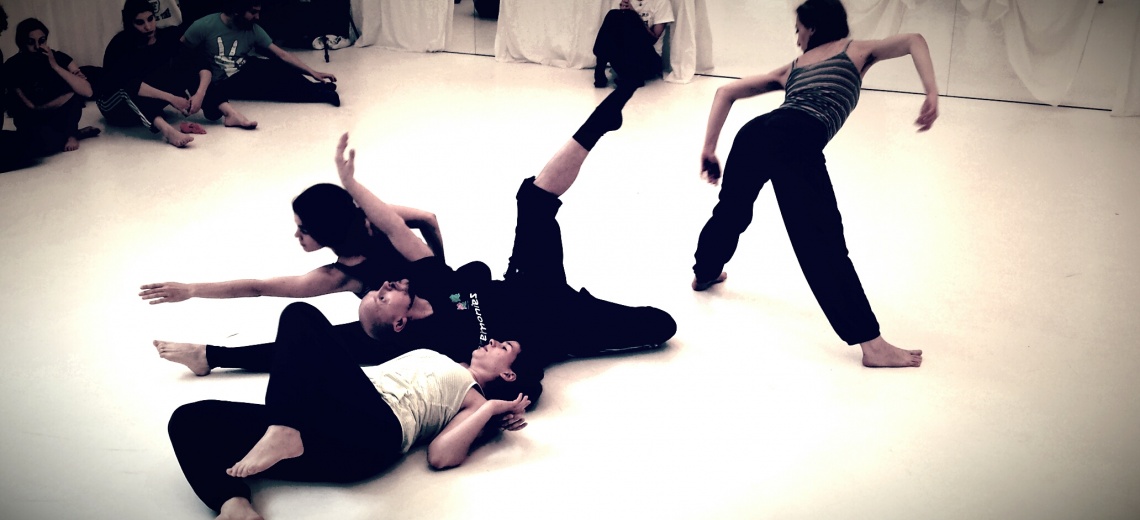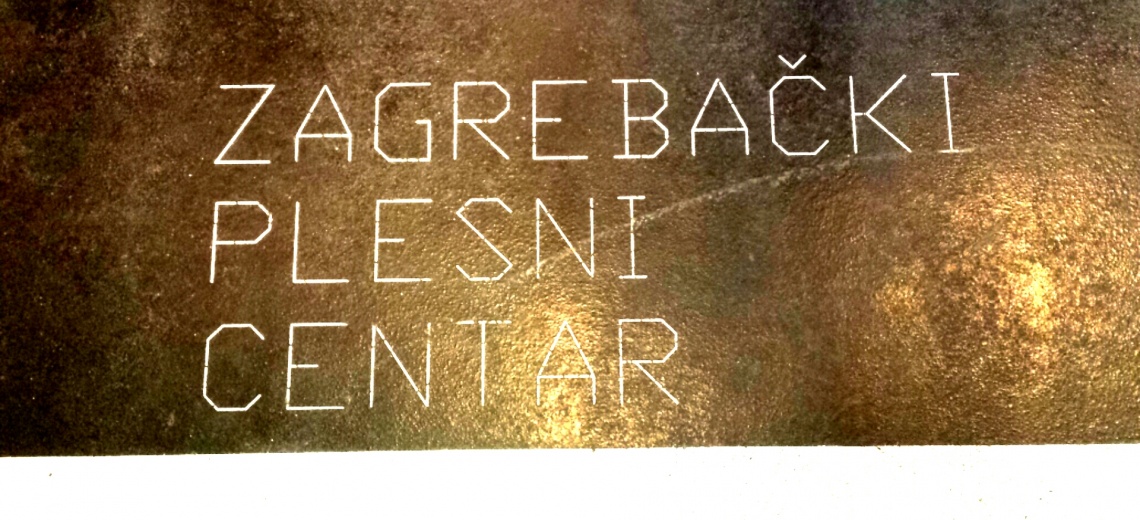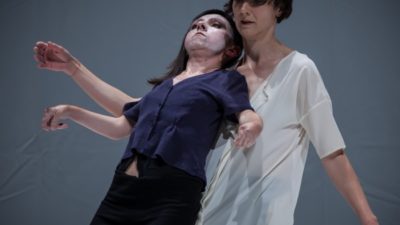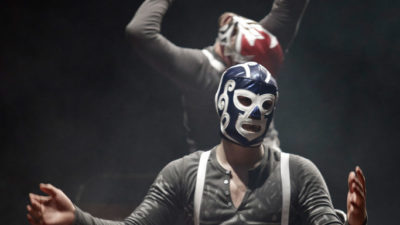Mirna Zagar, Director of the Croatian Institute for Movement and Dance in Zagreb, talks about the changes she has witnessed in Croatia and the work still to be done in making the dance scene more inclusive.
The Croatian Institute for Movement and Dance (HIPP or Hrvatski institut za pokret i ples in Croatian) is also the producer of the annual Dance Week Festival, an international contemporary dance festival that has since its very beginnings promoted inclusivity. For us at the Institute, it is a given that dance is for everyone and everybody can engage with dance as an audience member or as active participant.
Throughout our programming history we have always made efforts to be as inclusive as possible. Presenting works of dance, performance art, theatre, mime with and by artists with various and varying levels of disability is a high priority in pursuit of equitable access to arts and arts practice by our citizens. One of our first presentations of work in this area was with the Dutch theatre company Suver Nuver. The work was not performed by disabled artists but it was about disabilities in a novel way and questioning what it really means to be disabled/ abled, and audiences were challenged to consider what does disable/ able really mean. Who is to define this, and how do we define it?
Shattering assumptions
In our history of presenting artists and offering workshops we have programmed a steady stream of works which could be said to have not only challenged the traditional theatre goer, but also shattered some assumptions deeply rooted in our culture : that dance is and can only be for “fully abled” people, that excellence requires a superior set of very specific skills and that these can only be mastered by specific bodies. These assumptions go beyond the connotation of bodies or performers with disabilities. If you have a short neck you cannot be a classical ballerina, if you have short legs you cannot be a dancer; you can be a gymnast only if your body is of a certain type etc… If you are blind, you stay at home, if you are disabled you stay at home. For many in our society living with disability, going out into the world has always been a huge, almost impossible task. With the war in Croatia, we knew that many people – including children and young people – had been impacted and their lives changed for ever as they lost their limbs, yet it was obvious they too were becoming invisible.
Candoco in Croatia
The presentation of Candoco at the National Theatre in Zagreb in the mid 1990s was a shock to many! And nothing after this was ever the same. In addition to the typical production issues – how do we present a world class company in an aged theatre setting – this presentation had additional challenges. We learned that hotels did not have adequate accommodation capacities. That transportation from the airport to the city and within the city would need to be resolved as vehicles and public transport were not adequate. The theatre was not prepared nor equipped. Ramps had to be built, amongst other things. We reached out to the few associations we knew of who were working with disabled people and learned that most often, disabled people do not go to theatre and we learned why. As much as it being a financial barrier, it was also an emotional, social and physical one.
We made sure that the theatre was able to accommodate a large group of disabled people in the audience. We approached a transportation company and we learned that they had been considering purchasing a vehicle. Media coverage on the challenges that we as organisers were facing pushed them to be more expedient. From thinking about it, they actually did it! A small but significant step.
We took CandoCo to rehabilitation centres located outside of Zagreb and they met with war veterans and with young people who were learning how to deal with their new situation and challenges. This encounter as we later learned for many was an inspiring one and one which enforced their faith that being disabled is not the end of the world. Following on from CandoCo we then presented works by artists from Spain, Netherlands, Belgium and the UK. I cannot really say if what happened next was prompted by showing Candoco’s work, but I like to believe it did. Since that moment, every year, in May on the Main City Square in Zagreb (Trg Bana Jelačića) there is an open air event featuring people of all abilities. Especially popular are youth dance groups of which there are now several active in Zagreb alone! Hotels too have undergone for the most part several upgrades to accommodate people with varying disabilities.
Dance in Croatia
There is more activism for sure as a result of Croatia joining the EU. However, the stigma and the challenges are still abundant. Theatres, including the beautiful National Theatre where CandoCo first performed nearly two decades ago, did not see much change through this time. For some years now we have been supporting a couple of individuals – Nerina Sibila and Amela Pasalic – who have a keen interest in inviting and working with people not considered typical dancers, at least according to our society’s understanding of a dancing body. They started small but were consistent and we were so happy to be able to offer the space to accommodate this activity at Zagreb Dance Centre – smack in the heart of the city and the world of dance in Croatia!
Today this collective IMRC has been steadily growing in interest; participation by disabled and non-disabled dancers and artistic ideas and visions abound. Their work is highly acclaimed. And so when we received the invitation to join the family of the Unlimited Access partnership there was no other response possible than YES.
This European collaboration has given momentum to what IMRC collective does, their standing within a broader arts context is now seen as significant contribution to the overall arts scene. Vesna Mačković is now in residency at HIPP, who encouraged by the work through Unlimited Access and through IMRC has shown a huge ambition and is already become deeply involved in the performing arts scene participating in a variety of dance, theatre and music performances. She will soon embark on a collaboration with Austrian artist Florentina Holzinger through a residency at Zagreb Dance Centre.
We hope that Unlimited Access continues to bring us in closer collaboration with arts organisations and artists working in the field and we look forward to future opportunities.
Throughout our history as a structure supporting contemporary dance, we have never doubted that dance should, can and is a inclusive practice and art form, and we are glad that despite all the challenges we are facing the only way is forward. The only real obstacle is mindset: a lack of understanding and unfortunate overall lack of appreciation of the positive impact arts and dance have on communities both socially and economically. Through support and networking within Unlimited Access we know that we are not alone and this gives us vital encouragement and support to find solutions, sustain development and create new opportunities towards a more inclusive arts and dance practice in Croatia.”
Mirna Zagar is Director of the Croatian Institute for Movement and Dance, a partner in Unlimited Access. Her career in dance spans over 25 years, she is an active member of the Croatian dance scene and has contributed substantially to its developments. First a dancer then artistic director for the Zagreb Dance Company, in 1981 she founded Dance Week Festival (Tjedan Suvremenog Plesa) which is today one of Europe’s leading international dance festivals.







